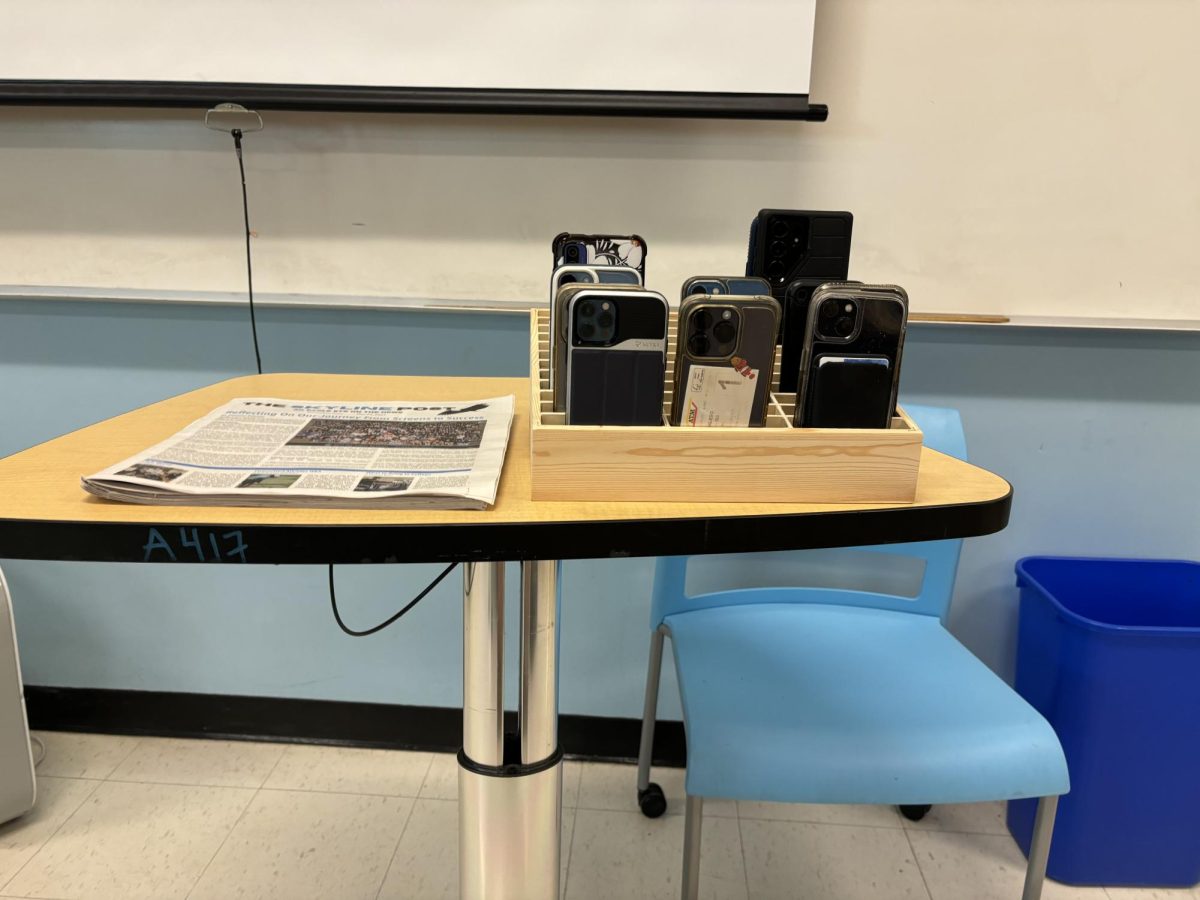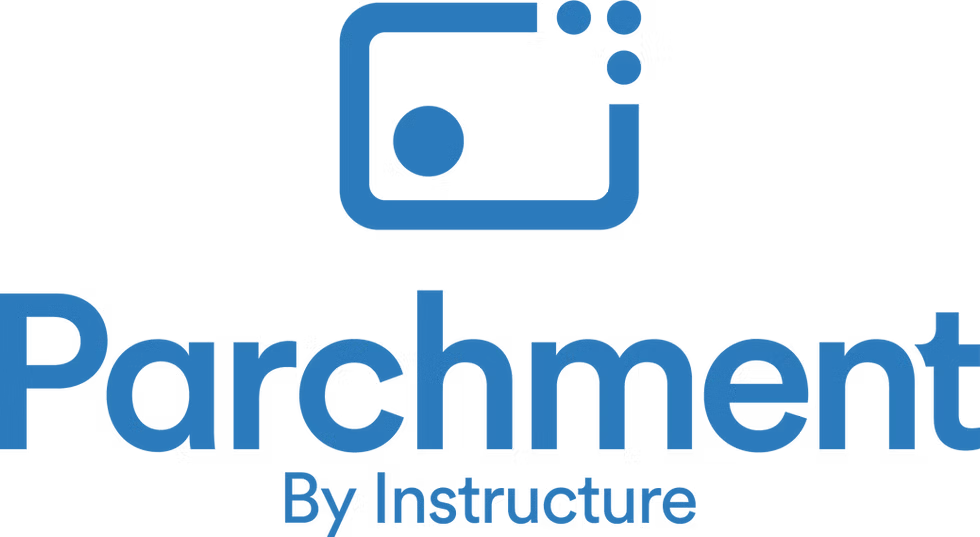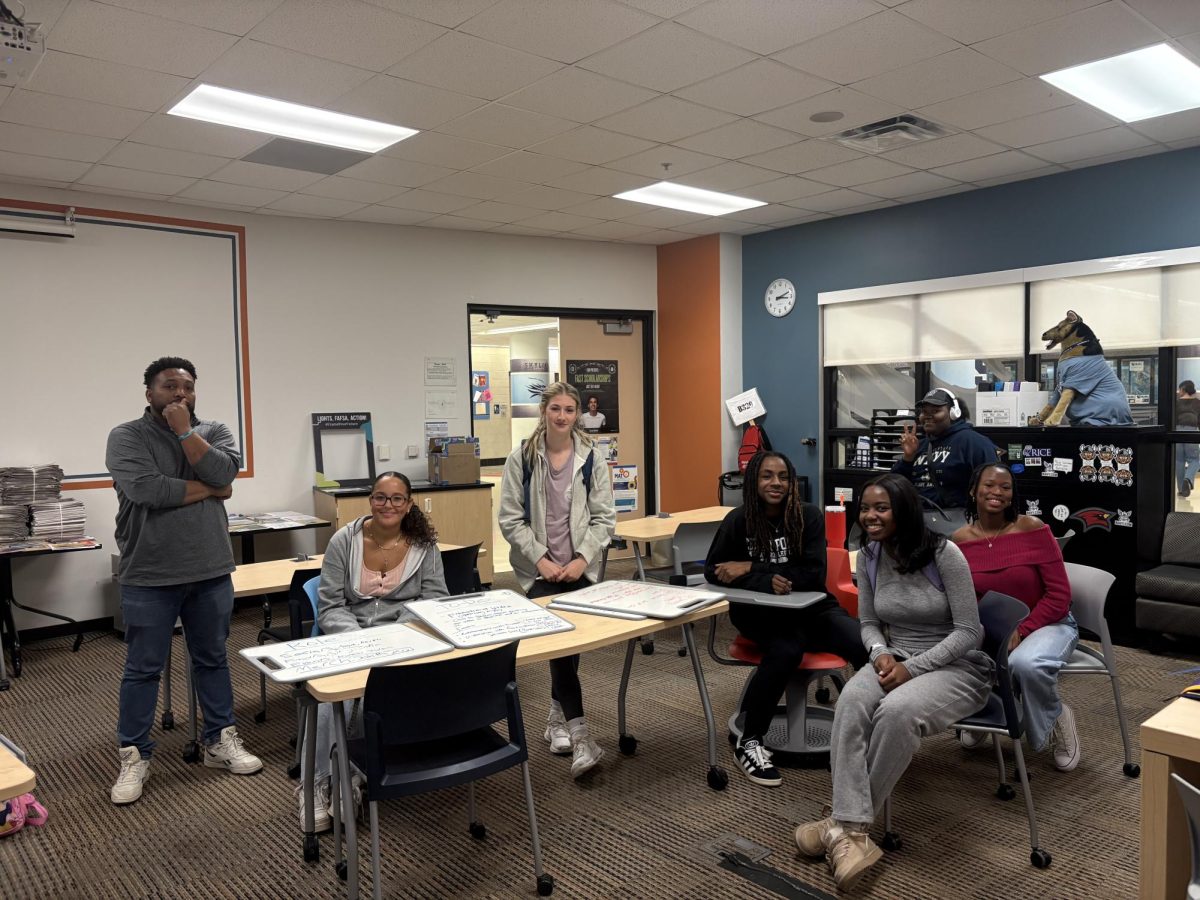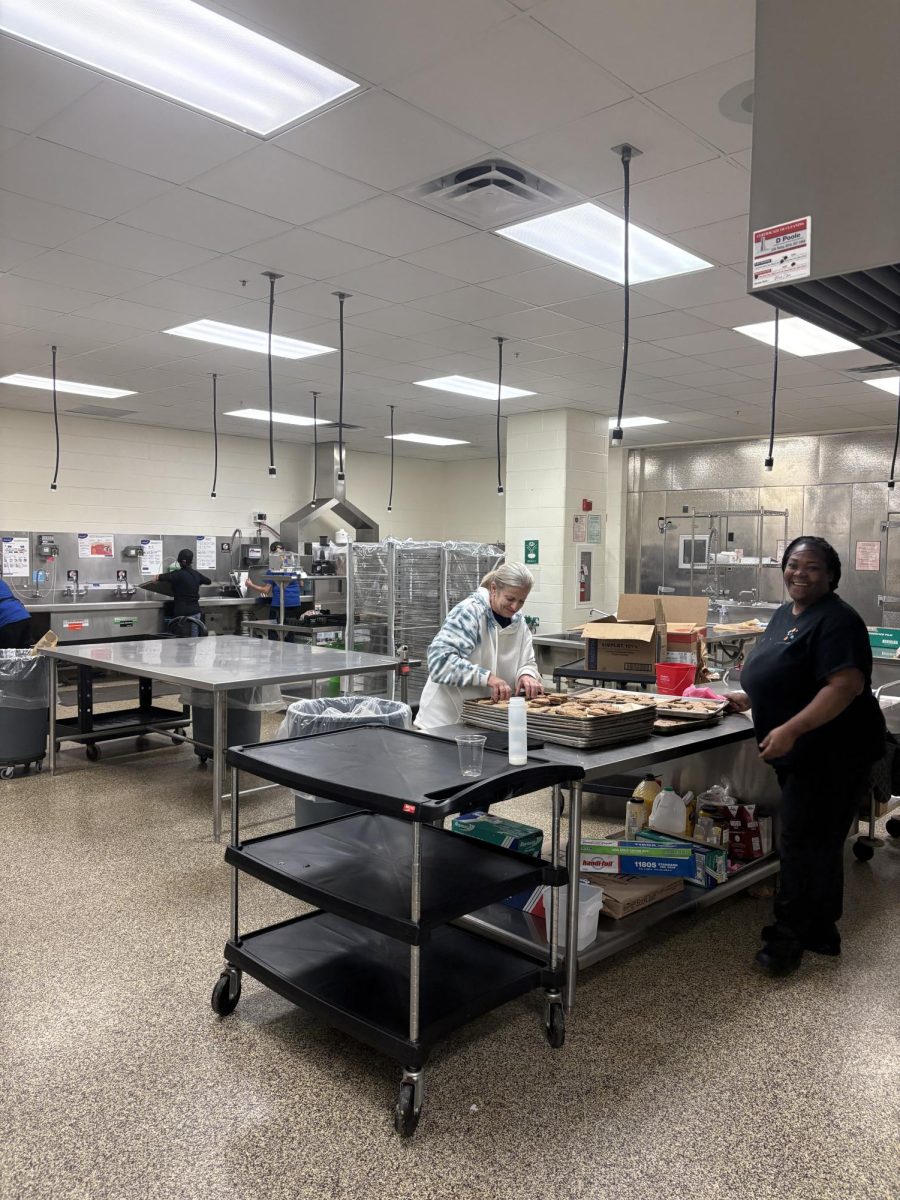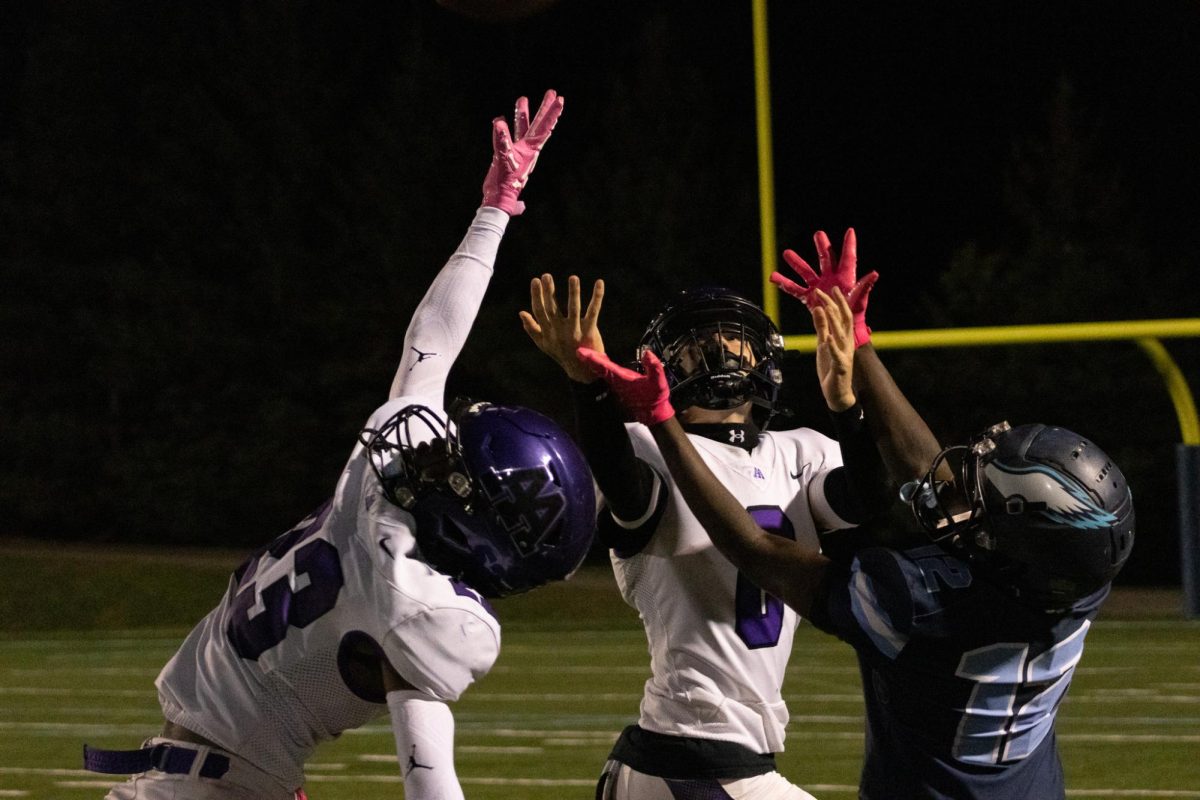For most high school students, cell phones are a staple in their lives. Phones seem to be everywhere and with everyone at all times – even sneaking into classrooms as mini agents of distraction.
To combat this, Skyline High School is implementing a new cell phone policy for the 2024-25 school year. The policy has been finalized, voted on by staff, and will be shared with the Skyline community before the start of the fall trimester.
While the policy’s details have not yet been released, one thing is evident: in the coming year, there will be a major change in the access to phones and headphones during classes.
Though electronics have uses in schools, Skyline teachers have noticed the detrimental effects of unrestricted cell phone use in the classroom. As a result, they have turned to administration requesting a more restrictive and consistent school wide policy.
As students have become more addicted to and dependent on the constant stimulation that cell phones offer, teachers find it increasingly difficult to keep the focus on the learning.
“Students are unaware of how much they are actually on their phone,” says AP Language and Composition and English teacher Christopher Cole. “I think it’s an addiction and it’s interfering with…many student’s abilities to do work in class and concentrate on difficult concepts.”
African American Humanities and English teacher Tonya Whitehorn agrees:, “The biggest struggle that I have with cell phone use in the classroom is students not being able to self-regulate. Not being aware that the phone use is getting in the way of them being able to concentrate on what I’m saying, them being able to follow directions, and even the time management factor. If they’re on their phones, they don’t realize that the phone is inhibiting the amount of time they spend on an assignment.”
In addition to teachers’ academic concerns about phone use, recent research shows that smartphone use is at least partially linked to the rise in teen mental health issues, isolation and to stunted interpersonal development.
To no one’s surprise, teachers and students take very different stances on the issue. Students seem to take any anticipated restriction on phone use as a jab to their level of maturity. As young adults, this makes sense. Students are nearing adulthood, and managing one’s responsibilities is a part of growing up and being taken seriously.
Teachers, on the other hand, have experienced an addicted student body that has not earned the right to unrestricted phone use. School is supposed to prepare a person for adulthood; how can this learning take place when eyes are glued to screens and the digital world is more appealing than the actual one?
A point of contention on the use of cellphones in school is why students even feel the urge to pull out a phone in the middle of class. “There are most definitely some classes where I will not use my phone because of how packed it is,” says Jae Drake (‘25). “There’s a lot of content in some classes so that I cannot use my phone at all. I think that when I do use my phone in class…it’s when I have no other work to do.”
Whether the use of phones is an addiction or a time filler, teachers’ perception is that students are often unaware of just how much of their class time is spent on a screen.
Some students, however, do realize that phone use is a privilege that should be handled with self-control. “Kids need to learn responsibility,” says Ariele Myers (‘27). Myers suggests that students should exercise restraint and put their own phones away, “Teachers shouldn’t have to do it.”
Implementing phone policies in the past has proved to be a challenge for Skyline. Currently, phone and device use is up to individual teachers. The new policy will leave teachers without the same measure of discretion. ““The implementation of it (the existing phone policy) has been…inconsistent from one classroom to another,” says Michael Jones, AP Chemistry teacher. The policy on the horizon will be school wide, and though consistency may no longer be an issue, it may be much more challenging for individual teachers to adapt the policy to their classrooms and different teaching styles.
This will be a working policy, meaning that Skyline administration says it will be open to changing and adapting it based on feedback throughout the year. “There’s going to be bumps along the way, things we’ve not thought of, we come back to but we’ve at least thought through this,” says Jones, “and we might have to come back and modify some things.”
Skyline students should anticipate a major change in their access to cell phones but, “just like with any other policy we’ll gather feedback, come back to it, look to see that it’s working, and see if it has the desired impact,” says Interim Principal Casey Elmore.
Administration has now finalized the 2024-25 policy. Before finalizing, they sent out a survey to students on April 30th to include the student body in the decision-making process. The purpose of the survey was to “understand your views and concerns regarding cell phone usage at school,” says Interim Principal Casey Elmore in a Schoology class update, “we believe that your perspective will greatly contribute to shaping a policy that is fair and effective.”
Skyline Principals also hosted feedback sessions during both lunch periods on Tuesday, April 30th, and Friday, May 3rd. There was low student turnout.
The degree to which student opinions were incorporated into the final policy will be revealed along with the policy, before the new school year begins.

